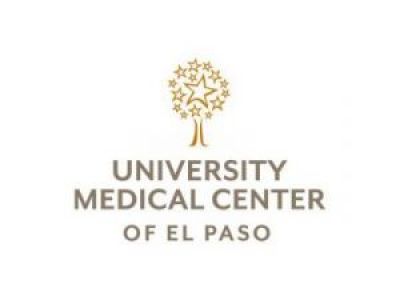UMC Receives National Recognition For Meritorious Outcomes From The American College of Surgeons
 November 8, 2022
November 8, 2022
Download PDF
EL PASO, Texas — The American College of Surgeons National Surgical Quality Improvement Program (ACS NSQIP®) has recognized University Medical Center of El Paso as one of 78 ACS NSQIP participating hospitals that have achieved meritorious outcomes for surgical patient care in 2021. As a participant in ACS NSQIP, UMC is required to track the outcomes of inpatient and outpatient surgical procedures and collect data that assesses patient safety which is used to continue improving the quality of surgical care.
There are only six hospitals in Texas to receive this recognition. UMC is the only hospital in the region to be recognized, and UMC is one of three hospitals in Texas to be recognized in both major categories (of 407 Texas hospitals).
“This is a very robust measurement of surgical quality, outcomes, which gives us an objective measure on the care we are providing our surgical patients,” said Dr. Alan H. Tyroch, Professor & Founding Chair of Surgery, Paul L. Foster School of Medicine - Texas Tech University Health Sciences Center, and Chief of Surgery & Trauma Medical Director at University Medical Center of El Paso. “Dr. Alonso Andrade (Texas Tech Physicians and Surgical Medical Director at UMC) is our NSQIP champion; and he makes sure that all data regarding surgeries is reviewed with the surgical team. This ensures we are always staying at peak performance levels in caring for our patients. This is a team effort between Texas Tech and UMC physicians, anesthesiologists, nurses, techs, private physicians and specialists, and everyone who contributes to the care of our patients.”
The ACS NSQIP recognition program commends a select group of hospitals for achieving a meritorious composite score in either an “All Cases” category or a category which includes only “High Risk” cases. Risk-adjusted data from the July 2022 ACS NSQIP Semiannual Report, which presents data from the 2021 calendar year, were used to determine which hospitals demonstrated meritorious outcomes. UMC has been recognized on both the “All Cases” and “High Risk” Meritorious lists.
Each composite score was determined through a different weighted formula combining eight outcomes. The outcome performances related to patient management were in the following eight clinical areas: mortality, unplanned intubation, ventilator greater than 48 hours, renal failure, cardiac incidents (cardiac arrest and myocardial infarction); respiratory (pneumonia); SSI (surgical site infections-superficial and deep incisional and organ-space SSIs); or urinary tract infection.
The 78 commended hospitals achieved the distinction based on their outstanding composite quality score across the eight areas listed above. Forty hospitals are recognized on both the “All Cases” and “High Risk” lists, 21 other hospitals are on just the “All Cases” list, and 21 other hospitals are on the “High Risk” list only – yielding 82 hospitals in total. Four hospitals did not consent to their names being released, leaving 78 hospitals on the final list.
ACS NSQIP is the only nationally validated quality improvement program that measures and enhances the care of surgical patients. This program measures the actual surgical results 30 days postoperatively as well as risk adjusts patient characteristics to compensate for differences among patient populations and acuity levels. The goal of ACS NSQIP is to reduce surgical morbidity (infection or illness related to a surgical procedure) and surgical mortality (death related to a surgical procedure) and to provide a firm foundation for surgeons to apply what is known as the “best scientific evidence” to the practice of surgery. Furthermore, when adverse effects from surgical procedures are reduced and/or eliminated, a reduction in health care costs follows. ACS NSQIP is a major program of the American College of Surgeons and is currently used in nearly 850 adult and pediatric hospitals.
The American College of Surgeons is a scientific and educational organization of surgeons that was founded in 1913 to raise the standards of surgical practice and to improve the care of the surgical patient. The College is dedicated to the ethical and competent practice of surgery. Its achievements have significantly influenced the course of scientific surgery in America and have established it as an important advocate for all surgical patients. The College has more than 84,000 members and it is the largest organization of surgeons in the world.
Its achievements have significantly influenced the course of scientific surgery in America and have established it as an important advocate for all surgical patients. The College has more than 84,000 members and it is the largest organization of surgeons in the world.
###


